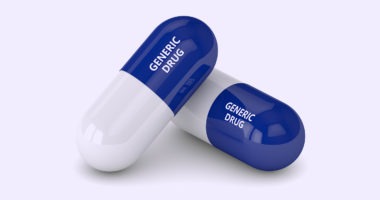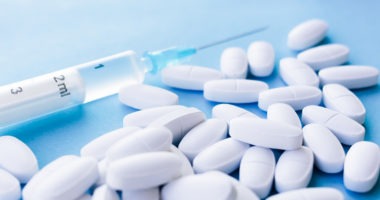Mid-Year Review: The Top 10 Deals of 2018
So which mergers and acquisitions among pharmaceutical companies have made the mark thus far in 2018? DCAT Value Chain Insights takes an inside look.
Two $60-billlion deals top the list. First is Bayer’s $63-billion acquisition of Monsanto, an agrochemical and seed company, the largest deal in Bayer’s history and a move to fortify its strategy of being a pure-play life-sciences company. The second is Takeda’s proposed $62-billion acquisition of Shire, coming just two years after Shire’s $32-billion acquisition of Baxalta, the biopharmaceutical company spun off from Baxter Healthcare. What other deals of import have been made thus far in 2018?
2018’s leading deals thus far
1. Bayer’s $63-billion acquisition of Monsanto. Bayer completed its $63-billion acquisition of Monsanto, an agrochemical and seed company earlier this month (June 2018). The deal was the largest in Bayer’s history and ended a two-year effort to acquire the company. The move fortified its strategy of being a pure-play life-sciences company with a focus on pharmaceuticals, crop protection, consumer healthcare, and animal health. The deal was significant in that it places a huge investment into Bayer’s crop-protection business, not its pharmaceuticals business, which was the largest revenue piece for Bayer in 2017. It is also a test for Werner Baumann, who became chairman of the board of management of Bayer AG in May 2016 and who continued the strategic decision to make life sciences the focus of Bayer.
Following the acquisition and taking into account certain divestments required of Bayer to complete the regulatory approval of the deal, Bayer’s health and agriculture businesses will have total pro forma sales of around EUR 45 billion ($53 billion), including combined sales of the crop-science business of around EUR 20 billion ($23 billion). With the acquisition of Monsanto, Bayer’s crop-sciences business will be the largest piece of Bayer by sales, surpassing its pharmaceutical business, which accounted for nearly 50% of the company’s sales in 2017. In 2017, Bayer had total sales of EUR 35.015 billion ($41.180 billion) with pharmaceuticals accounting for EUR 16.847 billion ($19.842 billion) or 48% of sales. Sales of the crop-science business were EUR 9.577 billion ($11.250 billion), and sales of its consumer-healthcare business were EUR 5.862 billion ($6.887 billion). Sales of its animal-health business were EUR 1.571 billion ($1.848 billion).
2. Takeda’s pending $62-billion acquisition of Shire. Takeda Pharmaceutical’s pending $62-billion acquisition of Shire is the other mega deal thus far in 2018. Takeda first disclosed an acquisition proposal for Shire in late March 2018, which was rejected by Shire, and subsequently made several revised proposals. The companies finally came to terms in May with the approval of the $62-billion deal by both companies’ boards of directors. The deal is subject to shareholder approval and regulatory approvals.
The acquisition of Shire would strengthen Takeda’s position in markets outside of Japan, provide it with a specialist in rare-diseases and plasma-derived therapeutics, and complement its positions in gastroenterology and neuroscience while keeping oncology as a key therapeutic focus for Takeda, a position strengthened through Takeda’s $5.1-billion acquisition of Ariad Pharmaceuticals in 2017.
The proposed acquisition of Shire by Takeda comes two years after Shire’s $32-billion acquisition of Baxalta, the biopharmaceutical company spun off from Baxter Healthcare. In 2017, Shire recorded total revenues of $15.2 billion, which included product sales of $14.4 billion ($7.4 billion from Shire products and $7.0 billion from Baxalta products). Immunology is Shire’s largest therapy area with 2017 revenues of $4.370 billion and is one of five therapeutic franchises with sales in excess of $1 billion. Hematology ($3.786 billion), neuroscience ($2.664 billion), internal medicine ($1.670 billion), and genetic diseases ($1.438 billion) are the others.
Takeda is also gaining geographic diversification with a proposed acquisition of Shire. In 2017, 64% of Shire’s 2017 revenues of $15.2 billion were from the US. Takeda had 34% of its 2017 revenues from Japan, 34% from the US, 17% from Europe and Canada, and 16% from emerging markets. A combined Shire/Takeda on a pro forma revenue basis would have 48% of its revenues from the US, 33% from international markets, and 19% from Japan.
3. GlaxoSmithKline’s $13-billion acquisition for full control of its consumer healthcare joint venture with Novartis. Earlier this month (June 2018), GlaxoSmithKline (GSK) agreed to acquire Novartis’ 36.5% stake in the companies’ consumer healthcare joint venture for $13 billion, which would grant GSK full ownership of the business. The joint venture was formed in 2015 as part of Novartis’ portfolio transformation, which comprised a three-part transaction with GSK, including the combination of Novartis’ over-the-counter business with the GSK consumer healthcare business into the existing joint venture. Novartis also acquired certain oncology products and pipeline compounds from GSK and divested its non-influenza vaccines business to GSK. GSK had an option to acquire Novartis’ share beginning in March 2018 through March 2035. GSK said in April 2018 that this put option, in both size and possible timing, created inherent uncertainty for its capital planning and that its decision to buy out Novartis’ stake would remove this uncertainty and improve the company’s ability to plan allocation of capital to its other priorities.
4. Sanofi’s $11.6-billion acquisition of Biogen spin-off Bioverativ. In March 2018, Sanofi completed its previously announced $11.6-billion acquisition of Bioverativ, a Waltham, Massachusetts-headquartered company created from the spin-off of Biogen’s hemophilia business. The deal was announced in January 2018.
Biogen spun off its global hemophilia business into a separate company, Bioverativ, as a new independent, publicly traded biotechnology company focused on hemophilia and other rare blood disorders in February 2017. Bioverativ generated 2017 revenues of $1.17 billion.
Sanofi said the acquisition meets one of the priorities of Sanofi’s 2020 strategic roadmap to focus on areas where the company currently has, or can effectively build, a leadership position. Sanofi said that the addition of Bioverativ supports this priority by adding a differentiated offering of innovative therapies and providing a platform for growth in rare blood disorders, which expands its position in specialty care and rare diseases.
5. Celgene’s $9-billion acquisition of Juno Therapeutics. Celgene made a big play for cell and gene therapies with its approximate $9-billion acquisition of Juno Therapeutics, a biopharmaceutical company focused on developing cellular immunotherapies for the treatment of cancer. Celgene completed the acquisition in March 2018. The Juno acquisition provides Celgene with a scientific platform and scalable manufacturing capabilities, in addition to lisocabtagene maraleucel, an investigational CD19-directed chimeric antigen receptor T-cell therapy (CAR T) currently in a clinical development program for relapsed and/or refractory diffuse large B-cell lymphoma.
6. Celgene’s $7-billion acquisition of Impact Biomedicines. Celgene made another large acquisition in 2018, by acquiring Impact Biomedicines, a San Diego, California-headquartered biopharmaceutical company, in a deal worth up to $7 billion, which includes $1.1 billion upfront and up to $5.9 billion in regulatory and sales milestones. Impact Biomedicines is focused on developing drugs to treat myeloproliferative neoplasms, a type of blood cancer, and other cancers. Impact’s late-stage pipeline is centered around fedratinib, an oral small molecule, Janus kinase (JAK) inhibitor (specifically a JAK2 kinase inhibitor), which is being developed initially for treating myelofibrosis, a blood cancer that disrupts the normal production of blood cells, and polycythemia vera, a slow-growing blood cancer. Impact was formed in 2016 after acquisition of Sanofi’s full rights for the global development and commercialization of fedratinib.
7. Sanofi’s $4.5-billion acquisition of Ablynx. Earlier this month (June 2018), Sanofi completed its EUR 3.9 billion ($4.5-billion) acquisition of Ablynx, a Ghent, Belgium-based biopharmaceutical company focused on developing and commercializing proprietary therapeutic proteins based on single-domain antibody fragments. Sanofi says the acquisition continues its focus on technologies addressing multiple disease targets with single multi-specific molecules. Ablynx has a pipeline of more than 45 proprietary and partnered Nanobody (the proprietary name for its therapeutic proteins based on single-domain antibody fragments) candidates for a range of therapeutic areas such as hematology, inflammation, immuno-oncology, and respiratory diseases, according to Sanofi. Eight Nanobodies have entered clinical development.
Ablynx’s most advanced product in development is caplacizumab, an anti-von Willebrand factor Nanobody, for treating acquired thrombotic thrombocytopenic purpura, a rare blood disorder. The company filed a marketing authorization application in the European Union, and at the time of the announced acquisition in January 2018, expected to file in the US during the first half of 2018.
8. Roche’s pending $2.4-billion acquisition of Foundation Medicine and $1.9-billion acquisition of Flatiron Health. Roche is making a strong investment in tools for drug development for cancer drugs. Earlier this week, Roche agreed to acquire full ownership of Foundation Medicine, a Cambridge, Massachusetts-based molecular information company, by acquiring the outstanding shares not already owned by Roche for approximately $2.4 billion. Roche now owns more than 50% of the company. Foundation Medicine’s services include a full suite of genomic-profiling assays to identify the molecular alterations in a patient’s cancer and match them with relevant targeted therapies, immunotherapies, and clinical trials. The move follows Roche’s $1.9-billion acquisition earlier this year (April 2018) of Flatiron Health, a New York-headquartered healthcare technology and services company focused on oncology.
9. P&G’s pending $4.2-billion acquisition of Merck KGaA’s consumer healthcare business. In April 2018, Procter & Gamble (P&G) agreed to acquire the consumer healthcare business of Merck KGaA, for approximately EUR 3.4 billion ($4.2 billion).The acquisition provides P&G with healthcare commercial and supply capabilities, technical capabilities, and consumer healthcare leadership that will add to P&G’s existing consumer healthcare capabilities and brands such as Vicks, Metamucil, Pepto-Bismol, Crest, and Oral-B. The deal is expected to close during the 2018/19 fiscal year, subject to customary closing conditions and regulatory clearances.
The $1-billion consumer healthcare business of Merck KGaA, grew 6% over the past two years, but was no longer part of the company’s strategic focus on prescription drugs for its biopharmaceutical business. For P&G, the acquisition of the consumer health business of Merck KGaA replaces the PGT Healthcare joint venture P&G had with Teva Pharmaceutical Industries, which will be terminated July 1, 2018.
10. Fresenius’ termination of $4.75-billion merger with Akorn. In a deal that has seen several turns, in April 2018, Fresenius, a Lake Zurich, Illinois-headquartered specialty and generic pharmaceuticals company, decided to terminate the company’s $4.75-billion merger agreement with Akorn, a Lake Forest, Illinois-headquartered specialty generic pharmaceutical company, due to Fresenius’ assertion of Akorn’s failure to fulfill several closing conditions. Fresenius originally agreed to acquire Akorn for $4.3 billion plus approximately $450 million of net debt, for a total of $4.75 billion in April 2017 with an expected closing in early 2018. Fresenius said its decision to terminate the deal is based on, among other factors, material breaches of US Food and Drug Administration data-integrity requirements relating to Akorn’s operations found during Fresenius’ independent investigation. Fresenius said it offered to delay its decision in order to allow Akorn additional opportunity to complete its own investigation and present any information it wished Fresenius to consider, but Akorn declined that offer, according to Fresenius. Akorn is disputing Fresenius’ termination of the companies’ merger agreement file by filing a complaint in Delaware Chancery Court asking that Fresenius be required to fulfill its obligations under the definitive merger agreement.





